The great Maury Laws turns 95 this Thursday, so today we look at the very first Rankin/Bass TV special featuring a full score of original Maury Laws and Jules Bass songs.
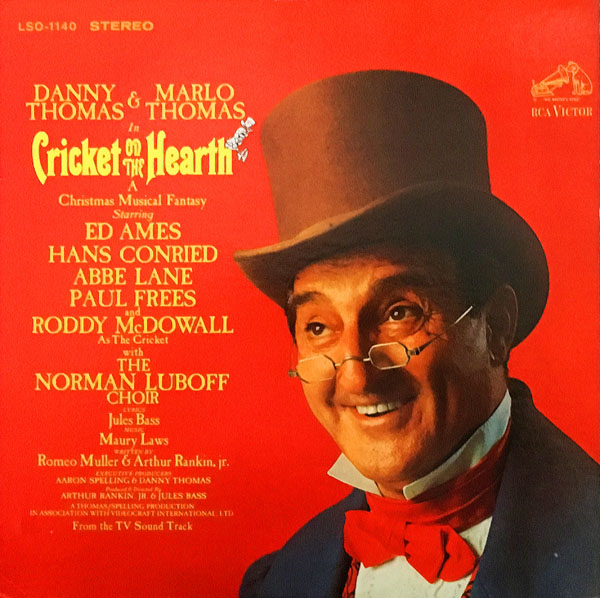
Rankin/Bass Present
Danny Thomas and Marlo Thomas in
CRICKET ON THE HEARTH
A Christmas Musical Fantasy
From the TV Sound Track
RCA Victor Records LSO-1140 (Stereo) LOC-1140 (Mono) (12” 33 1/3 RPM LP)
Released in 1967. A Thomas/Spelling Production in Association with Videocraft International, Ltd. TV Producer/Directors: Arthur Rankin, Jr., Jules Bass. Executive Producers: Aaron Spelling, Danny Thomas. Production Executive: Ronald Jacobs. Music Producers: Maury Laws, Norman Luboff, Joe Reisman, Jim Fogelson. Arrangers: Maury Laws, Norman Luboff, Wayne Robinson, Perry Botkin, Jr. Conductors: Maury Laws, Norman Luboff, Sid Feller. Teleplay: Romeo Muller, Arthur Rankin, Jr. Album A&R Coordinator: Jim Fogelsong. Engineers: Dick Bogert, John Norman. Running Time: 24 minutes.
Performers: Danny Thomas (Caleb Plummer); Marlo Thomas (Bertha Plummer); Ed Ames; Abbe Lane; The Norman Luboff Choir.
Songs: “Cricket on the Hearth,” “The First Christmas,” “Don’t Give Your Love Away,” “Fish ‘n’ Chips,” “That Was Yesterday,” “Smiles Go With Tears” by Maury Laws, Jules Bass.
Instrumentals: “A Waltz for Christmas,” “Parade of the Toys” by Maury Laws.
Few composer/arranger/conductors have had more impact on more childhoods and holiday traditions than Maury Laws, an unassuming native of North Carolina who was a natural musician from the age of twelve. Maury specialized in guitar and singing, both of which served him well in the early days of radio and in the armed forces, where he was able to learn his musical craft from seasoned pros with a wide variety of styles and skills.
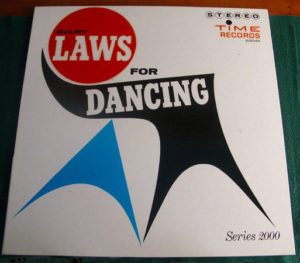 This training gave Maury a knack for interpretation of almost any kind of music. It not only gave him an edge in radio music, but it helped him get work with small record companies that did budget cover versions of popular songs. Carefully listening to a hit song, Maury was able to pick up the full arrangement to duplicate it, or to adapt it for a smaller, less expensive combo. He could go into a studio and produce as many as six at one session. In addition, Maury was a prolific arranger of children’s records throughout the 1950’s for such labels as Peter Pan and Cricket/Pickwick (look for records by such artists as Betty Wells, Gabe Drake or Bill Marine and you’ll usually hear the Laws touch).
This training gave Maury a knack for interpretation of almost any kind of music. It not only gave him an edge in radio music, but it helped him get work with small record companies that did budget cover versions of popular songs. Carefully listening to a hit song, Maury was able to pick up the full arrangement to duplicate it, or to adapt it for a smaller, less expensive combo. He could go into a studio and produce as many as six at one session. In addition, Maury was a prolific arranger of children’s records throughout the 1950’s for such labels as Peter Pan and Cricket/Pickwick (look for records by such artists as Betty Wells, Gabe Drake or Bill Marine and you’ll usually hear the Laws touch).
Sometimes Maury’s name was prominent on a record, as in Maury Laws for Dancing on Time Records, but he could just as easily do “ghost” arrangements for busy musical directors with no credit. One of these was Brian Hyland’s novelty hit, “Itsy Bitsy Teeny Weeny Yellow Polka Dot Bikini.” As long as the contract work kept coming in, Maury was happy to take care of it.
One of the music firms that made use of Maury’s talents was Forrell, Thomas and Pollack, a New York company that provided music and jingles for films and commercials. (You can find their work on the first few volumes of the Firestone “Your Christmas Favorites” albums.)
When Arthur Rankin Jr. and Jules Bass began Videocraft International Ltd. with their syndicated series The New Adventures of Pinocchio and Tales of The Wizard of Oz, as well as their first theatrical feature, Willie McBean and His Magic Machine, they hired FT&P for the music (we covered the resulting Pinocchio album in this Spin). Maury was the orchestrator for their first TV special, Return to Oz, and they were so pleased with his work that he was put on contract as musical director for Rudolph, the Red-Nosed Reindeer (see this Spin).
From that point on, he worked on virtually every Videocraft, later Rankin/Bass, production. “I was never on staff at Rankin/Bass,” Maury told me. “But they gave me so much contract work that I never was available for anything else.”
Rudolph inspired Rankin and Bass to see just how far they could take their particular business model of cel animation, stop-motion or live action that originated in the U.S. but was largely filmed in Japan, Canada or England. Within a year, they were working on Saturday morning animation, feature films and additional specials—all from their small New York office.
Their score of their second TV special, The Ballad of Smokey the Bear, was again written by Rudolph composer Johnny Marks, augmented by Maury’s arrangements. It wasn’t until 1966’s feature film The Daydreamer that Maury was able to compose his own songs with lyrics by co-producer/director Jules Bass. The resulting feature, a combination of live-action and Animagic stop-motion vignettes, was far too ambitious for its paltry budget but still yielded many fine moments and a fine freshman score from the new songwriting team (more about that soundtrack album here).
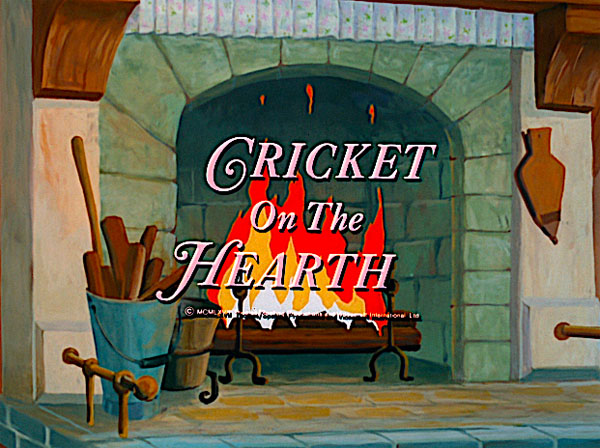
Charles Dickens’ Cricket on the Hearth was the second Rankin/Bass Christmas special and it provided Laws and Bass with their second original score. (The film has just been released on Blu-ray for the first time in a new Rankin/Bass set called The Original Christmas Specials Collection with a bonus documentary featuring Jerry Beck and your author). Cricket on the Hearth isn’t a familiar title to many people—not even to the star of the show, Danny Thomas, who confesses to such in his live-action introduction. In fact, aside from the animated Rankin/Bass version, there has never been a filmed version of Cricket on the Hearth since the days of silent movies.
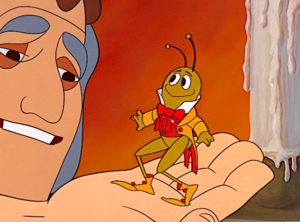 In its original broadcast, the Rankin/Bass version wasn’t so much a “special” as it was an episode of a weekly one-hour NBC anthology series called The Danny Thomas Hour, in which the popular entertainer presented a different drama, comedy or variety program at random each week, much like Walt Disney on his Wonderful World of Color. Cricket on the Hearth was the episode for Danny Thomas’ show that week, airing Monday night, December 18, 1967 at 9:00 p.m. EST, right after The Man from U.N.C.L.E.
In its original broadcast, the Rankin/Bass version wasn’t so much a “special” as it was an episode of a weekly one-hour NBC anthology series called The Danny Thomas Hour, in which the popular entertainer presented a different drama, comedy or variety program at random each week, much like Walt Disney on his Wonderful World of Color. Cricket on the Hearth was the episode for Danny Thomas’ show that week, airing Monday night, December 18, 1967 at 9:00 p.m. EST, right after The Man from U.N.C.L.E.
The later hour might account for a few somewhat sophisticated elements in Cricket on the Hearth. Even though the story is told by a talking insect and some toys come to life, there are many elements of romance, tragedy and violence. Most of the songs aren’t peppy jingles so much as emotive ballads. This was intended as entertainment for the whole family, but not at the exclusion of either kids or adults.
As they did in The Daydreamer, Rankin/Bass aimed very high with Cricket on the Hearth. Rather than go for the lowest common denominator, the attempt was to blend fantasy, epic adventure and drama, set to a stirring musical score, all in less than fifty minutes. Still a young company spreading their wings, the creative team was trying to see how far they could take limited animation, a short turnaround time and a fraction of a theatrical budget and make it up with great talent, music and inventiveness.
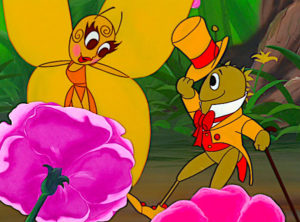 It was a time of experimentation for Rankin/Bass. A year earlier they delivered The Daydreamer to executive producer Joseph E. Levine, who wanted Mary Poppins at the equivalent of tuppence a reel. The average budget for an hour of a weekly series TV could not possibly provide the kind of animation necessary to convey the emotion and range of story inherent in Cricket on the Hearth. And in this cast, it was a TV episode, not a TV special, so the budget was likely even lower. Thus, almost every song was a cutaway montage with extensive pans and long zooms. Viewed in the complete circumstantial context, the results are spectacular for how they formed the basis of what Rankin/Bass would accomplish—and know how to overcome–successfully for the next two decades.
It was a time of experimentation for Rankin/Bass. A year earlier they delivered The Daydreamer to executive producer Joseph E. Levine, who wanted Mary Poppins at the equivalent of tuppence a reel. The average budget for an hour of a weekly series TV could not possibly provide the kind of animation necessary to convey the emotion and range of story inherent in Cricket on the Hearth. And in this cast, it was a TV episode, not a TV special, so the budget was likely even lower. Thus, almost every song was a cutaway montage with extensive pans and long zooms. Viewed in the complete circumstantial context, the results are spectacular for how they formed the basis of what Rankin/Bass would accomplish—and know how to overcome–successfully for the next two decades.
Thus, while Cricket on the Hearth may not top the list of many folks’ all-time holiday specials lists, it’s one of the most important ones in the Rankin/Bass library. Paul Frees makes an auspicious debut for the company, doing more voices than all the other cast members combined. Roddy McDowall and Hans Conreid also begin their Rankin/Bass associations. Visually, the distinctive design of Paul Coker, Jr.— of Mad magazine fame and countless humorous greeting cards—made his TV special bow here as well.
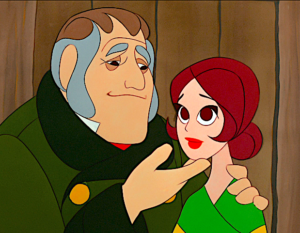 The experience must have pleased Marlo Thomas enough for her to return to Rankin/Bass for That Girl in Wonderland on ABC’s Saturday Superstar Movie in 1972. (In addition, the Rankin/Bass sound editors were able to make good use out of the Cricket underscore, as it is heard consistently in the 1972 syndicated series Festival of Family Classics.)
The experience must have pleased Marlo Thomas enough for her to return to Rankin/Bass for That Girl in Wonderland on ABC’s Saturday Superstar Movie in 1972. (In addition, the Rankin/Bass sound editors were able to make good use out of the Cricket underscore, as it is heard consistently in the 1972 syndicated series Festival of Family Classics.)
It was only Laws and Bass’ second score and yet they were learning how to “spot” the best places for songs in a film, so much so that each successive special (and the feature Mad Monster Party) would benefit greatly from the Cricket experience.
Cricket also had quite a few wonderful songs and makes a fantastic album. RCA must have had expectations for both “The First Christmas” and “Don’t Give Your Love Away,” as both songs were given special arrangements for the album in hopes that they might have received radio play as singles.
Maury Laws lives quietly in Wisconsin, having occasionally conducted concerts—usually containing a “Rankin/Bass Suite.” “I can’t believe how much people really want to hear this music,” he remarked. “We had no idea what it was to become when we first created it.”
“Fish ‘n’ Chips”
Abbe Lane’s singing role as a bawdy saloon singing cat only appears for a brief time in the film, and the song gets short shrift in the special, which is a shame because the song, her performance, and Maury Laws arrangement are wonders to behold on the album version. With its tinny bar room piano and wailing brass, this would provide Laws and Bass with a musical blueprint for such songs as “The Heat Miser/Snow Miser Song,” and “Put One Foot in Front of The Other.”


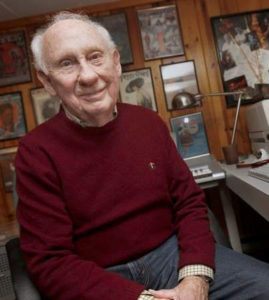
 GREG EHRBAR is a freelance writer/producer for television, advertising, books, theme parks and stage. Greg has worked on content for such studios as Disney, Warner and Universal, with some of Hollywood’s biggest stars. His numerous books include Mouse Tracks: The Story of Walt Disney Records (with Tim Hollis). Visit
GREG EHRBAR is a freelance writer/producer for television, advertising, books, theme parks and stage. Greg has worked on content for such studios as Disney, Warner and Universal, with some of Hollywood’s biggest stars. His numerous books include Mouse Tracks: The Story of Walt Disney Records (with Tim Hollis). Visit 









































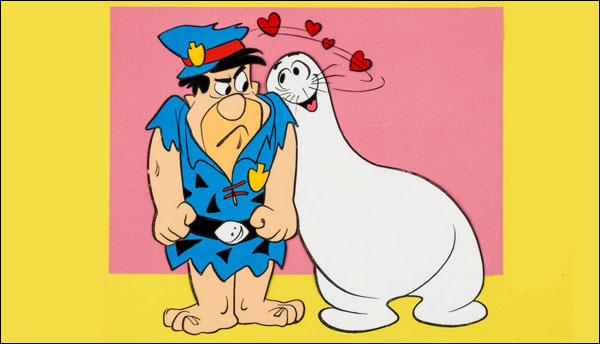
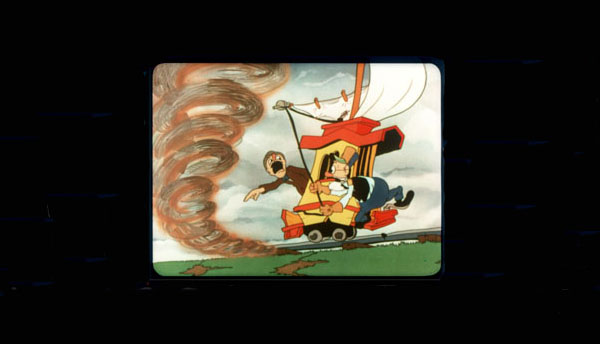










The story was heavily re-worked from the Dickens original. The main characters are absent completely, and the toy-maker and his blind daughter are given center stage. The cricket was not an actual character in the original, but a symbol of home and hearth. It’s intriguing to observe how Rankin & Bass adapted Dickens for their animated specials, although Dickens purists would not approve. This version of “Cricket on the Hearth” must be regarded as a separate entity altogether. Taken on its own terms, it’s charming and delightful, definitely vintage Rankin-Bass, and there are many clever ideas. The pacing is a bit slow compared to their later works. Also, one important plot point is never resolved. Bertha’s blindness in this story is due to the stress of losing her lover, so since emotional stress brought on the blindness, presumably her sight would be restored when her lover returns, but this is not mentioned at the end. These quibbles aside, it’s a nice effort. I did not know before that this was part of the Danny Thomas TV series. Thanks for that tidbit of information.
Thanks for sharing the record version of “Fish and Chips.”
Having recently seen episodes of THE JACKSON FIVE and THE OSMONDS on the internet, I’m impressed by how Mr. Laws arranged songs by those two pop groups in ways that remained faithful to their respective sounds.
I love the CRICKET ON THE HEARTH soundtrack. Danny’s album version of “The First Christmas” is way better than the version he sings in the special. By the way, RCA Victor was supposed to put out the soundtrack for MAD MONSTER PARTY the same year, but it was cancelled.
Another great album Maury Laws arranged and conducted for Time Records was “Percussion on Stage” from 1961. Time albums may have eventually wound up in department store bargain racks later in the 60s, but they started out as a class act both in audio and repertoire. The Laws albums were typical of their pop side, full of top-rank New York session and jazz musicians, like Doc Severinsen, Bobby Rosengarden, Urbie Green, Bucky Pizzarelli, Walt Levinsky, Milt Hinton and on and on, a virtial who’s who. I still have a slew of Time albums I got for 88¢ – $1 from places like Woolworths and Montgomery Ward when I was in high school.
Nope. RAMLI premiered the next month (with a one-time special airing that past September). The Man from U.N.C.L.E. is what would have preceded this particular program.
Maury Laws’s music makes every one of the Rankin/Bass specials more magical. In fact, whenever I hear any of his songs and music for the specials, I can’t help but be reminded of the Sherman Brothers’ compositions for Mary Poppins, Chitty Chitty Bang Bang (which celebrates its 50th Anniversary this year), The Jungle Book, Charlotte’s Web, The Aristocats, Winnie the Pooh and so many others.